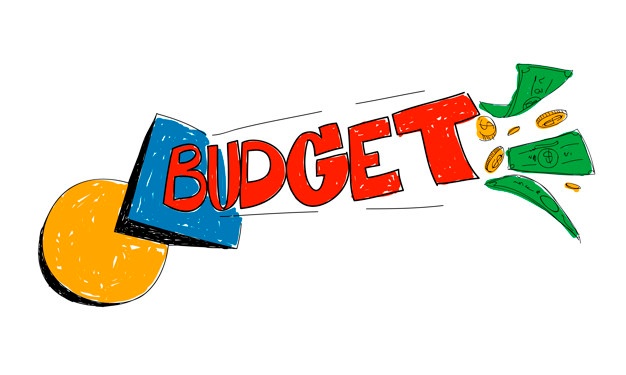In 2019, the budget was read with a declining economic performance going by the number of job losses announced by top tier companies in the country. Themed Creating Jobs, Transforming Lives – Harnessing the “Big Four” Plan, the budget set out an ambitious social-economic development agenda that seeks to move the nation to the next level of development.
The budget statements are usually critical for every stakeholder in different sectors of the economy given the policy and laws that may come out of it. So, it is important for any business regardless of the industry to be conversant with the ramifications of the proposed policies and laws.
So how did the budget affect the real estate sector?
The National Treasury made policy and legal proposals that affected the players in the real estate industry. One of the most outstanding issues addressed in the statement was, of course, tax.
A country’s budget must make due consideration to tax policies and procedures. The two are greatly intertwined.
1. Taxation
The government intend to lower the VAT Withholding Tax from 6% to 2% to eliminate the need for KRA to make refunds. This to help reduce the buildup of VAT refunds but will also help enhance the cash flow in real estate businesses.
However, it’s yet to be implemented.
Additionally, the government was to review the Capital Gains Tax upwards from 5% to 12%. This amendment will hit hard real estate investors who deal in property buying and selling.
By September 2019, CGT was increased to 12.5% with additional requirements for vendors in real estate transactions.
This has led investors to mark up the actual property values to cater for the increase in the CGT. This ultimately affected the listing time for properties in the marketplace.
However, market forces will have their way eventually. While the raise has been opposed by major players, Kenya charges the lowest rate in the entire East Africa Community region where the rate ranges from 20% to 30%. The difference was meant to give some sense of differential perspective disguised as a relief.
Revenue Raising Process Bill 2018
Still, concerning revenue mobilization, the National Treasury collaboration with the Council of Governors will implement the National Policy to Support Enhancement of County Governments’ Own-Source Revenue.
The bill was submitted to the National Assembly and it aims to regulate the introduction of levies by County Governments while ensuring that Counties do not prejudice national economic policies, cross-County economic activities; or, national mobility of goods, services, capital or labour.
The County Governments have been in the past introducing fragmented and unpredictable levies in a bid to maximize their revenue collection on the background of budget cuts by the National Treasury.
These actions have consequently adversely affected the business community including those in the real estate sector. If passed, real estate companies, as well as other businesses, will be able to operate under a reasonably predictable tax and levies regime with minimal disturbances while the County Governments be able, still, to optimize their revenue collection.
The bill will ensure better regulation of the process of introducing new levies by County Governments to safeguard the gains made in improving the business environments in the devolved units.
2. Supplier Payments
The government intended to make amendments to the Competition Act. This to empower the Competition Authority to deal with abuse of buyer power and ensure prompt payment to suppliers.
The proposed amendments provided for penalties for infringement of these provisions.
The Competition (Amendment) Bill, 2019, now an Act of Parliament, empowers the Competition Authority of Kenya to review contracts and agreements between suppliers and buyers to determine cases of abuse of buyer power.
Hence, contractors and other material suppliers in the real estate industry need to adjust their payment procedures so as not to get caught in the bad side of the law.
3. Affordable Housing
Since the idea of affordable housing was first pronounced, the government is finally taking practical actions in ensuring that existing housing deficit is met.
Already, the affordable housing scheme in Nairobi has kicked off with the first phase of public housing being built in Pangani.
Contractors and building suppliers stand to benefit immensely in the provision of goods & services as the construction of public housing takes off.
The affordable housing programme also received a significant boost with the recent establishment of the Kenya Mortgage Refinance Company which now opens access to affordable mortgage loans for those who would like to acquire homes.
Developers in the affordable housing market segment stand to gain more customers due to accessibility to cheap finance. Already, the government had given them a 15% corporate tax relief in last year’s budget statement.
See Also: Affordable Housing in Kenya: Big 4 Agenda
4. Infrastructure
The government has also made critical investments in the country’s infrastructure which is a key component in real estate business.
The government allocated Ksh 180.9 billion for on-going roads construction projects as well as the rehabilitation and maintenance of roads.
A further Ksh. 1.0 billion has been allocated for street lighting and Ksh. 1.5 billion for transformers in the constituencies. Developers who intend to put projects in areas marked for infrastructure improvement will significantly improve their value.
5. Corruption
For a long time, the real estate industry has been the patsy for illicit financial flow. As the government intensifies the war on corruption and improvement in governance, the industry will slow down.
The various agencies responsible have received increments in their budgetary allocations, an indication that we are in for a long fight.
In this respect, developers must be wary of those buying their properties using proceeds of crime and should not be seen as purveyors of the corruption.
Further to this, building contractors and suppliers engaging government will be under increased scrutiny.
Related: Effects of Corruption in Kenya on Real Estate
6. Timber
After concrete, timber is the next vital building construction component. However, the government placed a moratorium on logging of trees to stop deforestation.
The good gesture has had unintended consequences. The ban led to a shortage in supply of timber spiking the cost of this important building material.
7. Interest Rate Capping
The debate surrounding interest rate capping was like a sore thumb. This particular issue has driven a wedge between the executive and legislative arms of government.
The Central Bank of Kenya backed by the Kenya Bankers Association have been trying in vain to repeal the interest cap law that was enacted in September 2016. The legislature is simply not yielding.
In 2019, the interest cap was removed. With the removal of the interest rate cap, the Government’s plan of delivering 500,000 housing units by 2022 now stands a better chance of succeeding.
See Also: Is the Interest Rate Cap Removal Good For Kenya’s Housing?
8. Digitization of Land Transactions
The digitization of government services is to stamp out corruption and improve efficiency as well as effectiveness in the provision of citizen services.
Furthermore, several critical government services are digitized e.g. passport application, driving license, and NHIF among many others. Indeed, E-citizen is now the hallmark of digitization efforts in the country.
At the moment of the budget reading, the government was in the process of digitalizing land transaction services. This single act will go a long way in improving the ease of doing business in the real estate industry.
Processing of title deeds and transfer of ownership become easier. The delays in the issuance of title deeds and leases have been a thorn in the flesh for most property buyers that has created a rift between them and the sellers.
While the idea was welcomed, it experienced opposition from the legal fraternity who are alleging that the reforms are not per the law.
In conclusion:
As with any government plan, the intentions are always good. The budget statement hasn’t shaken the real estate industry to the core. Save for the increase in Capital Gains Tax and digitization of land transactions, the sector will not be affected so much. Maybe in 2020, the case will be different.













